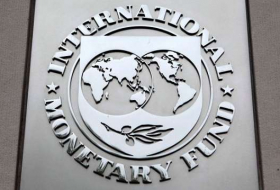Central banks, as a crucial financial institution, bear great responsibility in diminishing the adverse effects of global inflation and rapid price hikes on the economy. The fiscal policy they choose will determine the overall scenario of events.
Professor of Economics Elshad Mammadov has offered fascinating insights on the reasons behind global inflation and explained the monetary policy the Central banks should pursue under the current circumstances in his interview to AzVision.az.
- What steps should central banks take to curb global inflation?
‘An efficient monetary policy by central banks can create favourable conditions to build manageable parameters for the development of inflation, which has been one of the main problem-causing factors in global economy. Therefore, the crucial elements are how much money the central banks issue into the economy, the channels the money moves through, and efficient policy in combating inflation. The central banks indeed have multiple roles in creating, managing, and fighting inflation that has taken the world by storm. Theyhave become one of the main institutions in fighting inflation in terms of macroeconomic management. The trends of the last decades showcase that the monetary policy pursued by central banks determine the direction for inflationary development. Therefore, the sustainable and continuous trend under the current circumstances is the increase in central banks’ roles.’
- Which one is more appropriate in these cases: Increasing or decreasing money in circulation?
‘These decisions by central banks on whether to reduce or increase money supply should not be universal. Their actions should be guided by relevant parameters and the overall situation in the economy. Reducing money supply does not necessarily have sustainable positive effects in fighting rapid inflation boosts. The first step is to diagnose the inflation. It might consist of supply-side and demand-pull inflations. In some cases, both might overlap. Diagnosing the causes of inflation correctly is one of the most important factors for an adequate monetary policy. Demand inflation is related to excess money supply. It requires the central banks to implement restrictive monetary policies, which will enable the withdrawal of the excess money supply from the economy. On the other hand, when the nature and structure of inflation is not related to money supply, its withdrawal from the economy can bring about the opposite effect. There should be no universal recipes. The institutions in charge must employ differentiated approaches, applying either restrictive or stimulating measures depending on the nature of the inflation.’
- The FED (Federal Reserve System) in the US, the European Bank, the central banks in Great Britain, Japan and China have been issuing money almost without any restrictions since 2008. Do you think the current inflation may also be the consequence of such policy?
‘Since 2008 central banks, money creation centres and institutions, who play a leading role in global economy, have been pursuing the policy of combating the economic crisis through considerably increasing the money supply. The short-term positive effect of such policy led to an economic revival and solution of certain economic problems, such as the temporary elimination of money bubbles. However, all these problems made an acuter comeback, which we are all currently experiencing globally. So, the largely uncontrolled money supply by the leading central banks in the world is indeed one of the factors behind the current inflation growth.
The inflation the world is currently experiencing is, on the one hand, derived from supply-side factors, such as the breakdown of production chains, disruptions of transport-logistics ties, bringing about noticeable imbalances in the economy. On the other hand, excess emissions have added the demand-pull inflation as an extra burden for the global economy, making today’s inflation quite complex both structure and nature-wise. Mechanisms for fighting inflation and macroeconomic management methods based on ultraliberal methods, which have been the mainstream line in the world economics for many decades, are no longer effective, because the ongoing processes of both inflation and structural crises in the global economy are far more complicated. The approaches, solutions and management mechanisms employed must be at least as deep and diversified as the complexity of these processes. Solely resorting to policies of increasing or decreasing money supply will produce no results. The study cases of large economies have shown that around 70-80% of the growing money supply goes to financial bubbles, instead of investments, which, rather than solving, further aggravates the existing economic problems.’
- Should the Central Bank choose to increase or decrease the accounting rate? How would this choice effect the economic activity in the country?
‘I believe we should first adequately diagnose macroeconomic parameters. The indicators, nature, content, and structure of inflation in Azerbaijan point at the fact that supply-side inflation, rather than demand-pull, has reigned in the country over the past 30 years. There is no excess money supply in the country, so there is no need for the Central Bank to fight the current inflation and other economic problems through a severe restrictive monetary policy. Under the current circumstances, a monetary policy targeted at shrinking the money supply will cause adverse effects. The loans will become less available, therefore the decrease in investments will lead to contrary impact, rather than stimulating economic activity.
I believe our main targets in efficient management of the economy are to reduce dependence on imports, develop local production, prevent the impact of foreign economic shocks on domestic economy. Both solving these problems and curbing inflation efficiently firstly require creating necessary conditions for stimulating domestic production, which in turn needs incentive monetary policy in the country.
This does not mean that the Central Bank should allow uncontrolled injection of money supply into the economy and spending it in various undesired directions. While efficiently managing the money flow, we absolutely need to transform our monetary policy to become stimulating. Therefore, I believe the solution for us is to pursue a stimulating, softening monetary policy, while directing the growing money supply at investments, rather than foreign exchange market, consumer loans, or any other directions that may pose a threat to the economy. This will mean that the activities of the Central Bank and the overall monetary policy in Azerbaijan will serve economic development.
The main mission of central banks in the current economy should be generating necessary investment resources and translating money supply and financial resources from the financial sector into the real sector. I think the Central Bank of Azerbaijan should make these directions a priority in their overall management policy.’
- Can the central banks of different countries come together for a coordinated policy to eliminate the aftermath of global inflation?
‘It would be pure naivety to expect the central banks to cooperate on some constructive basis on a global scale. Looking back at the trends of the previous decades, the international globalization institutions have in most cases strictly observed, even showing some attempts to intervene, the activities of central banks. Global institutions such as the IMF (International Monetary Fund) have had a great impact on the policies of central banks, operating in many countries, including our region. These effects addressed the interests of globalization institutions in most cases, as their policy served the development of a single global economic model based on a single currency. The global economy today is still somewhat digesting the consequences of this policy.
On the other hand, regionalization is already becoming a global economic trend. In this context, we could certainly expect the central banks in the same region to build constructive cooperation aimed at regional economic integration and economic collaboration. I believe it is inevitable and crucial, because ultimately the globalization trend is replaced with regionalization, requiring regional economic partnerships, and synchronized monetary policies. This, in turn, will necessitate the central banks in the region to start thinking about constructive cooperation.
AzVision.az Analytical Group
More about:
















































